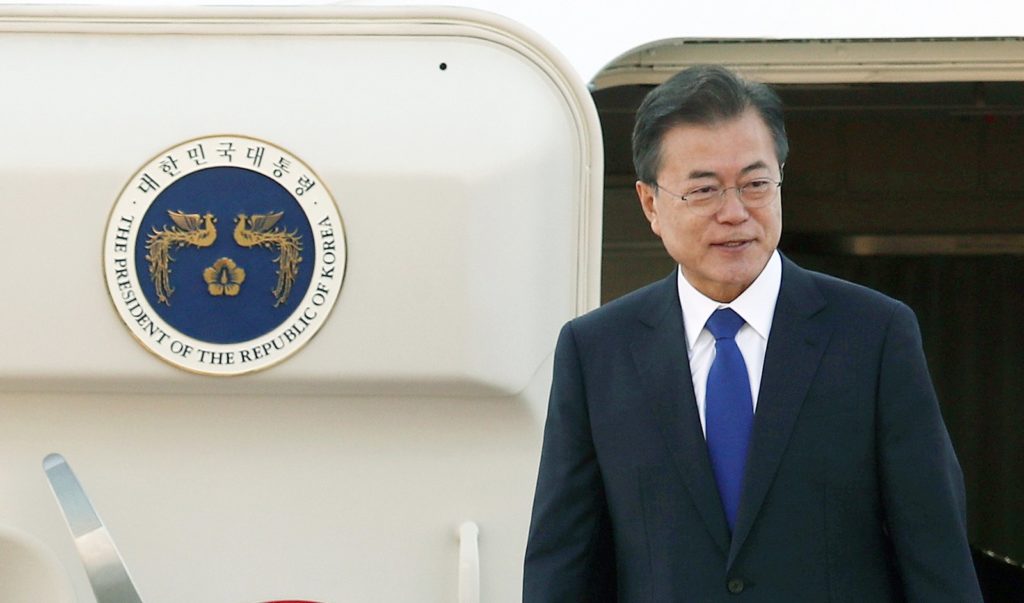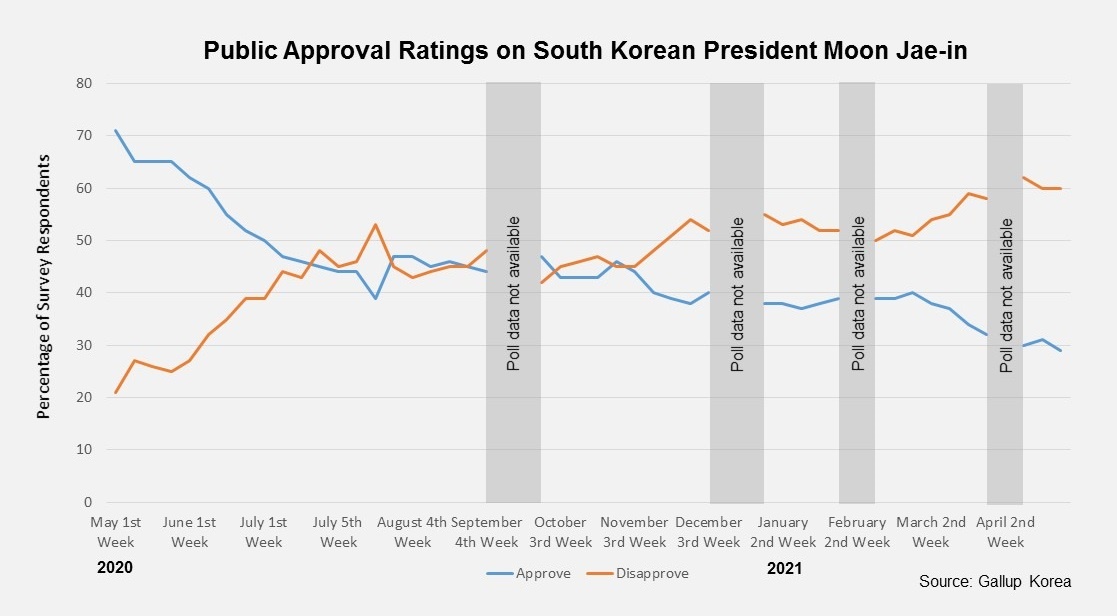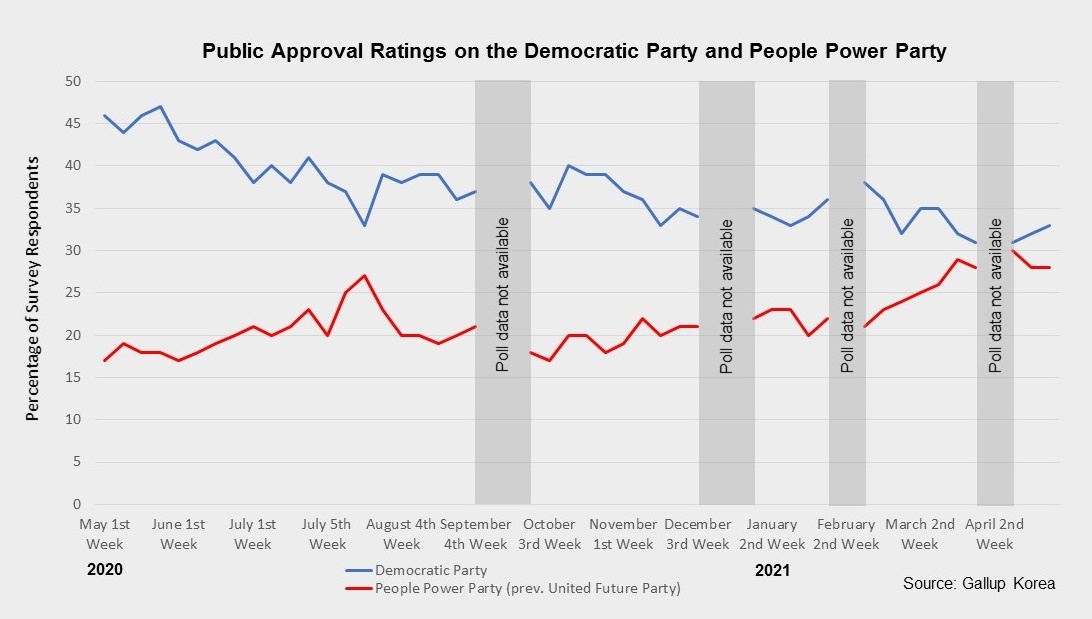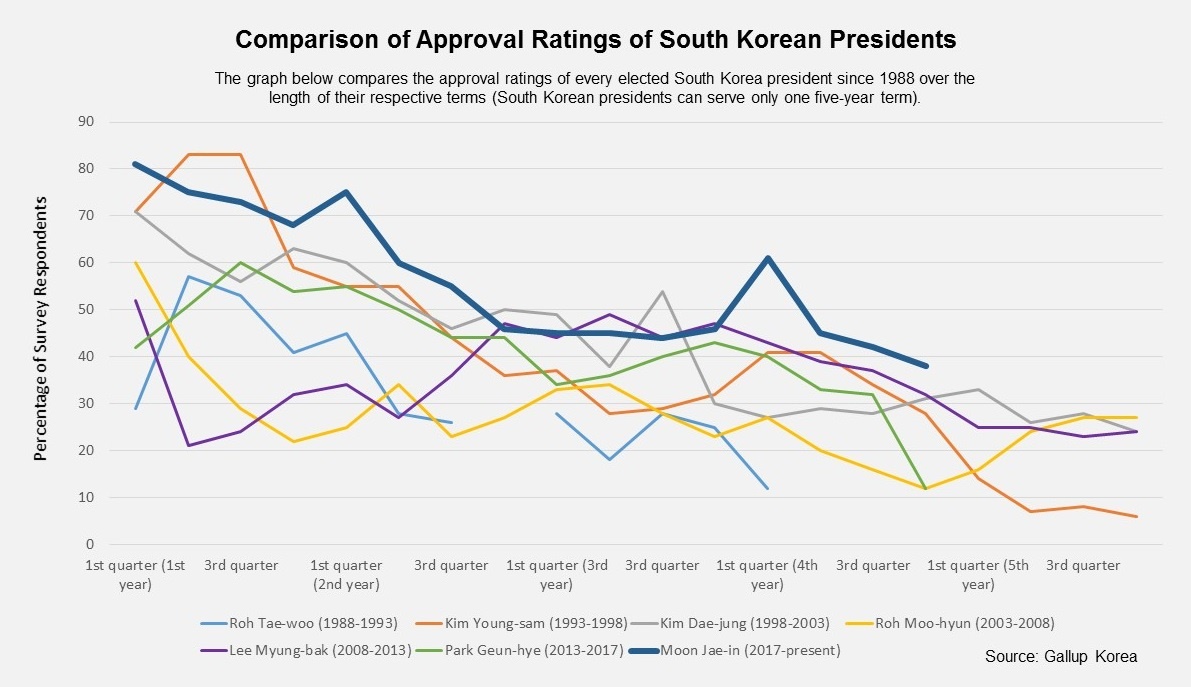The Peninsula
Matching Historical Trends, Moon Jae-in’s Approval Ratings Buckle in His Final Year

Nearly a year ago, President Moon Jae-in’s approval ratings were soaring on the strength of the South Korean government’s handling of the COVID-19 crisis, with some polls showing public approval above 70 percent. His party, the liberal Democratic Party, had also won a supermajority in the South Korea’s legislative body in April 2020. At the time, President Moon seem poised to enter the latter part of his term empowered by broad public support.
Since then, however, Moon’s ratings have steadily decreased with the latest Gallup Korea poll showing his current approval at 29 percent. The highest cited reason for disapproval was the administration’s real estate policies (28 percent of disapproving survey respondents), followed by dissatisfaction with the government’s handling of the COVID-19 crisis (17 percent) and other general economic concerns (9 percent). Public disfavor with the Moon administration was further punctuated earlier this month when conservative candidates won mayoral races in South Korea’s two largest cities Seoul and Busan, which was largely seen as a referendum of the Moon presidency.

While the decrease may seem startling at first glance, a wider lens showcases two important trends. First, Moon’s ratings since the beginning of his term have consistently decreased and last Spring’s ratings increase was a temporary bounce, similar to the one he received from his diplomatic breakthroughs with North Korea earlier in his term. In fact, economic concerns have dogged the Moon administration for years and continue to be a critical issue for South Korea voters. The second is that the overall decrease is in line with previous South Korean presidents, who generally see their ratings drop throughout the term. This is especially the case for South Korean presidents that started their terms with high overall approval like former presidents Kim Young-sam and Kim Dae-jung. In fact, no South Korean president has finished their term with a quarterly approval rating above 30 percent.

Looking at the glass half-full, Moon is actually outperforming all of his elected predecessors, which you can see in the above graph. However, if his ratings continue to sag he may finish in the same ballpark of the three previous presidents who finished their five year term (the previous president Park Geun-hye was ousted early due to scandal).
In addition to Moon’s sliding ratings, his party has also slowly leaked support over the past year, with the previously mentioned conservative election victories being a startling wake-up call for the Democratic Party. Despite Moon’s decreasing ratings throughout his term, it has only been within the past year that the conservative People Power Party (previously known as the United Future Party) began to make significant gains in public approval to rival the Democratic Party. Current polls show the two parties in a dead heat within the 3.1 percent margin of error.

The erosion of support for the Democratic Party is troubling for Moon and his party with the next presidential election less than a year away. After the scandal-ridden fallout of former president Park Geun-hye and the conservative party in 2016, the conservatives have been able to find their competitive footing once again. It is worth noting that despite prior South Korean presidents ending their terms with low approval, recent history has shown that presidential elections do not always swing back and forth along the political spectrum. Park Geun-hye won the election in 2012 after her conservative predecessor Lee Myung-bak, and liberal president Roh Moo-hyun won in 2002 after his predecessor Kim Dae-jung.
Even if Moon’s ratings continue to fall, the current trajectory suggests he may still end with the highest approval rating among former presidents. It is not much to celebrate about, but it does suggest that his party’s next candidate may still be well positioned in the next presidential election.
Juni Kim is the Senior Manager for Operations and Technology at the Korea Economic Institute of America (KEI). The views expressed here are the author’s alone.
Graphics by Juni Kim.
Image from the Republic of Korea’s photostream on flickr Creative Commons.
